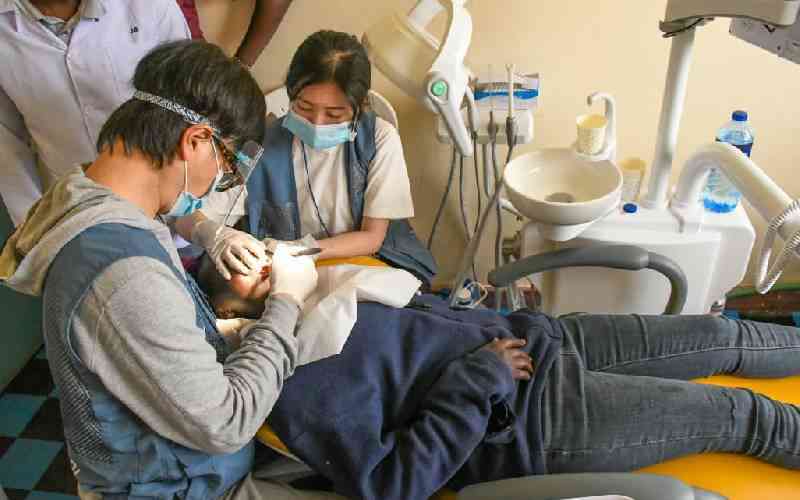
The European Union on Thursday approved the highly contentious Alzheimer's medication Kisunla under strict conditions, with the drug's effectiveness hotly debated by the medical community.
"The European Commission has granted EU marketing authorisation for Kisunla, a medicine to treat mild cognitive impairment, including mild dementia in the early stages of Alzheimer's disease," the commission announced in a statement.
Produced by US multinational Eli Lilly, the active substance of Kisunla is the antibody donanemab.
It is considered a breakthrough form of treatment for Alzheimer's disease along with Biogen's and Esai's Leqembi.
But the actual benefits of both drugs have provoked a heated medical debate.
On the one hand, they have shown an unprecedented effect during clinical trials after decades of unsuccessful research aimed at slowing patient deterioration.
On the other hand, this effect remains minimal, and some experts argue that the difference for patients is not substantial enough.
They can also cause severe and sometimes even fatal side effects, primarily haemorrhages and cerebral oedemas.
Based on recommendations from its European Medicines Agency (EMA), the EU granted marketing authorisation for Leqembi in late 2024, under strict conditions and after initially refusing to do so.
It did the same for Kisunla, which was also approved after an initial rejection: now, it may only be administered to patients in the early stages of Alzheimer's, and only if they do not have a genetic mutation that predisposes them to side effects.
The authorisation gives EU member states free rein regarding reimbursement.
In early September, France decided that Leqembi did not warrant an accelerated procedure for reimbursement approval, although it has not completely ruled out the possibility in the long term.
Outside the EU, the United Kingdom has approved both treatments but will not reimburse them, deeming the cost too high for such limited benefits.
The United States, both treatments have been authorised, but reimbursement is at the discretion of private health insurers.
 The Standard Group Plc is a multi-media organization with investments in media
platforms spanning newspaper print
operations, television, radio broadcasting, digital and online services. The
Standard Group is recognized as a
leading multi-media house in Kenya with a key influence in matters of national
and international interest.
The Standard Group Plc is a multi-media organization with investments in media
platforms spanning newspaper print
operations, television, radio broadcasting, digital and online services. The
Standard Group is recognized as a
leading multi-media house in Kenya with a key influence in matters of national
and international interest.











